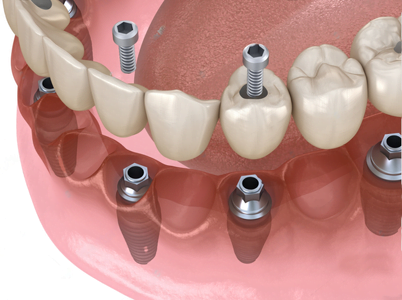Table of Contents
Choosing a dentist for dental implants is a significant decision that can deeply affect your life. Many individuals experience anxiety and uncertainty when faced with the prospect of dental procedures, especially one as important as implants. Understanding the nuances of this process and recognizing the importance of finding the right dentist can alleviate some of these concerns. Dental implants are more than just a solution for missing teeth; they represent a commitment to your oral health and a step toward regaining confidence in your smile.
Treating infection around dental implants requires a comprehensive and multidisciplinary approach. By understanding the causes, recognizing the symptoms, and utilizing the latest treatment options, dental professionals can effectively manage peri-implantitis and ensure the longevity of dental implants.
Understanding Dental Implants
Dental implants serve as artificial tooth roots, typically made from titanium, surgically inserted into the jawbone. They act as a sturdy foundation for replacement teeth, such as crowns, bridges, or dentures. The journey to getting dental implants involves various steps, including assessments, surgical placement, and follow-up care. Each phase is crucial in ensuring a successful outcome. Therefore, having a thorough understanding of dental implants and how they can enhance your life can help you feel more empowered when discussing options with your dentist.
What are causes of Peri-implantitis
Peri-implantitis primarily stems from bacterial infection, but several factors can increase the risk:
- Poor Oral Hygiene: inadequate brushing and flossing allow plaque to build up around the implant. Plaque harbors bacteria that can penetrate the gum line and cause infection.
- Smoking: tobacco use compromises blood flow to the gums, impairing healing and making the tissues more susceptible to infection.
- Pre-existing Conditions: conditions such as diabetes or autoimmune diseases weaken the immune system, reducing the body’s ability to fight off infections.
- Improper Implant Placement: incorrect placement of the implant can create areas that are difficult to clean, providing a breeding ground for bacteria.
- Residual cement: if any dental cement used during the crown placement is left around the implant, it can attract bacteria and lead to infection.
Genetic predisposition: some individuals may be genetically more prone to inflammatory responses, increasing their risk of peri-implantitis.

Why Choosing the Right Dentist Matters
Quality of Care
Selecting a dentist with experience and expertise in dental implants can truly make all the difference in your dental journey. The field of implant dentistry is intricate and requires a nuanced understanding of both the procedures and the technology involved. You deserve a professional who not only has the technical skills but also a deep understanding of the complexities of the procedure. This includes the surgical placement of implants, the integration of the implant with the jawbone, and the eventual placement of crowns or dentures. Each of these steps is crucial for the long-term success of the implants.
An experienced dentist will take the time to explain each step of the process in detail, demystifying what might seem overwhelming. They will discuss potential risks and complications, allowing you to have a clear understanding of what to expect. This transparency is key in helping to ease your anxiety and building a foundation of trust between you and your dentist. When you feel informed and reassured about your treatment, you’re more likely to approach the process with confidence.
Moreover, a dedicated dentist prioritizes your comfort and safety above all else. This can involve employing the latest techniques in sedation dentistry to ensure that you feel relaxed during the procedure. They will be attentive to your needs and preferences, creating an environment where you feel safe to express any concerns. Whether it’s discussing pain management strategies or the details of post-operative care, your dentist should be your ally, providing you with the support you need throughout your journey.
Personalized Treatment Plans
Each patient’s needs are unique, and the right dentist will take the time to develop a customized treatment plan tailored specifically to your situation. This individualized approach is vital for addressing not only your dental requirements but also your emotional well-being. When you meet with your dentist, they should conduct a thorough assessment of your oral health, medical history, and personal goals regarding your smile.
In crafting a personalized treatment plan, the dentist will consider factors such as the condition of your jawbone, the number of implants needed, and any existing dental issues. This comprehensive evaluation ensures that every aspect of your dental health is taken into account. It also allows for the identification of potential challenges early on, which can lead to better outcomes.
Beyond the technicalities, this customized approach helps you feel heard and valued throughout the process. A good dentist will engage you in the decision-making process, allowing you to express your preferences and concerns. They will work collaboratively with you to set realistic expectations and goals, ensuring that you feel in control of your dental journey.
Furthermore, an individualized treatment plan considers your lifestyle and personal circumstances. For example, if you have specific anxieties about dental procedures, your dentist might incorporate additional comfort measures or schedule your appointments during quieter times to minimize stress. This level of care demonstrates a commitment to your overall experience, making you feel more at ease and respected.
Post-Operative Care
After the dental implant procedure, proper care and follow-up appointments are essential for monitoring your healing process. The right dentist will emphasize the importance of these check-ups and provide you with clear instructions for aftercare, allowing you to feel confident in managing your recovery.
Technological Advancements
The field of dentistry is continuously evolving, and choosing a dentist who utilizes the latest technology can enhance your experience. Advanced techniques, such as digital imaging and guided surgery, can lead to more precise outcomes, minimizing discomfort and reducing recovery time.
Factors to Consider When choosing a dentist for implants
Qualifications and Experience
Start by researching the dentist’s qualifications and experience, especially in dental implants. Look for additional training or certifications in implantology, as these can be indicators of a dentist’s dedication to excellence in this specialized field.
Reviews and Testimonials
Online reviews and patient testimonials can provide insight into the dentist’s practice and the experiences of others. Take the time to read through these accounts to gauge the quality of care and the level of patient satisfaction.
Consultation Process
A good dentist will offer an initial consultation where you can express your concerns and ask questions. This is your opportunity to discuss any anxieties you may have about the procedure. A compassionate dentist will listen attentively and provide thorough answers, helping to alleviate your fears.
Technology and Techniques
Inquire about the technologies the dentist employs during the implant process. Advanced tools, like 3D imaging and computer-guided surgery, can enhance precision and efficiency, making the procedure smoother and less stressful for you.
Office Environment and Staff
The atmosphere of the dental office can impact your overall experience. Visit the practice to observe the environment, cleanliness, and how the staff interacts with patients. A friendly and professional team can make you feel more comfortable and welcomed.
Costs and Payment Plans
Understanding the costs associated with dental implants is crucial, as they can be a significant investment. Discuss the total expenses upfront, including consultations, procedures, and follow-up visits. Additionally, ask about payment plans or financing options that can help make the procedure more affordable.

How to choose the right dentist – Frequently Asked Questions
What are the benefits of dental implants?
Dental implants offer numerous advantages. They not only restore the functionality of your teeth, allowing you to eat, speak, and smile with confidence, but they also preserve the structure of your jawbone. Unlike dentures, which can slip or cause discomfort, implants are securely anchored, providing a stable and long-lasting solution.
How long do dental implants last?
With proper care, dental implants can last a lifetime. Maintaining good oral hygiene and attending regular dental check-ups is essential for ensuring the longevity of your implants. This reassurance can significantly reduce the anxiety surrounding the long-term care of your dental investment.
Is the dental implant procedure painful?
Most patients experience minimal discomfort during the procedure due to local anesthesia. After the surgery, some soreness is expected, but it can usually be managed with over-the-counter pain medications. Understanding the pain management process can help ease your concerns about discomfort.
How long does the dental implant process take?
The timeline for dental implants varies for each individual. The process can take several months, as it involves healing time after the implant is placed and, if necessary, the final placement of crowns or bridges. While this may seem daunting, knowing the steps involved can help you prepare mentally and emotionally for the journey ahead.
Can anyone get dental implants?
Most people are good candidates for dental implants, but certain medical conditions or lifestyle factors may affect eligibility. It’s vital to discuss your medical history and any concerns with your dentist to determine the best options for you. This open dialogue can foster a trusting relationship with your dentist.
What is the success rate of dental implants?
Dental implants boast a high success rate, often reported between 90% and 95%. Factors such as the dentist’s skill, your oral health, and adherence to post-operative care all contribute to this success. This statistic can provide peace of mind as you consider moving forward with the procedure.
What should I expect during the consultation?
During your initial consultation, your dentist will review your medical history, conduct a dental examination, and possibly take X-rays or scans. This is also an opportunity for you to ask questions and express any concerns you may have about the procedure. Feeling comfortable and informed is crucial during this phase.
How can I maintain my dental implants?
Caring for dental implants is similar to caring for natural teeth. Regular brushing, flossing, and routine dental check-ups are crucial. Your dentist may recommend specific products or techniques to ensure your implants remain healthy, giving you the tools you need to maintain your smile confidently.
Empower Yourself in Your Dental Journey
Choosing the right dentist for your dental implants is a pivotal step that can greatly influence your experience and the success of the procedure. By considering factors such as qualifications, technology, and patient care, you can make an informed choice that ensures your journey to a healthier smile is smooth and successful.
If you’re feeling anxious or overwhelmed about the prospect of dental implants, know that you’re not alone. Many individuals share these feelings, and it’s completely normal. We encourage you to reach out to us with any questions or concerns you may have. We’re here to support you and provide the information you need to make confident decisions about your oral health.
Your smile is important to us, and we are committed to offering you compassionate care that addresses not just your dental needs but also your emotional well-being. Together, we can explore the options available for restoring your smile and improving your quality of life.





